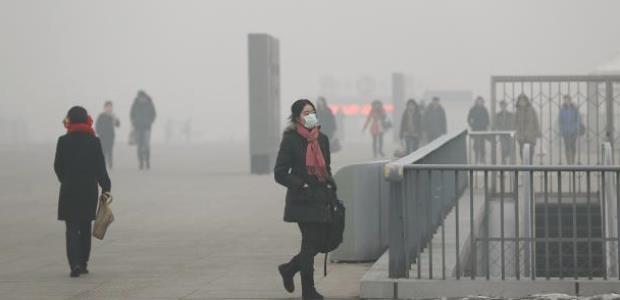
Air Quality Worsening in Many Cities: WHO
About half of the urban population being monitored in 91 countries is exposed to air pollution that is at least 2.5 times higher than the levels WHO recommends.
The World Health Organization reported May 7 that air quality in most of the 1,600 cities in its database are beset by air pollution that does not meet WHO's guidelines for safe levels, putting their residents at greater risk of respiratory diseases and other health problems. The organization's urban air quality database covers cities in 91 countries -- 500 more cities than its the previous database in 2011. The increase means more cities worldwide are monitoring their outdoor air quality, recognizing air pollution's health risks.
Only 12 percent of the people living in cities that report on air quality live in cities that meet the WHO air quality guideline levels, while about half of the urban population being monitored is exposed to air pollution that is at least 2.5 times higher than the levels WHO recommends. And the air pollution is getting worse for many reasons -- including reliance on fossil fuels, dependence on private transport motor vehicles, inefficient use of energy in buildings, and the use of biomass for cooking and heating.
"Too many urban centers today are so enveloped in dirty air that their skylines are invisible," said Dr. Flavia Bustreo, WHO assistant director-general for Family, Children and Women's Health. "Not surprisingly, this air is dangerous to breathe. So a growing number of cities and communities worldwide are striving to better meet the needs of their residents, in particular children and the elderly."
In April 2014, WHO issued new information estimating that outdoor air pollution caused the deaths of some 3.7 million people under the age of 60 in 2012.
"We can win the fight against air pollution and reduce the number of people suffering from respiratory and heart disease, as well as lung cancer," said Dr. Maria Neira, WHO's director for Public Health, Environmental and Social Determinants of Health. "Effective policies and strategies are well understood, but they need to be implemented at sufficient scale. Cities such as Copenhagen and Bogota, for example, have improved air quality by promoting 'active transport' and prioritizing dedicated networks of urban public transport, walking, and cycling."